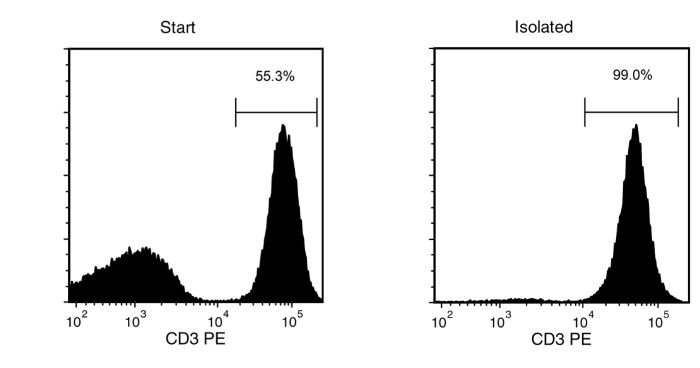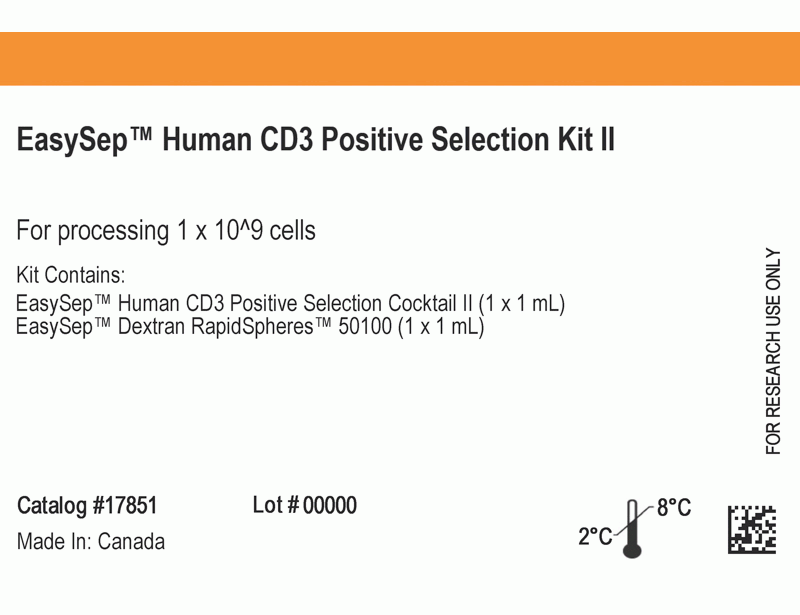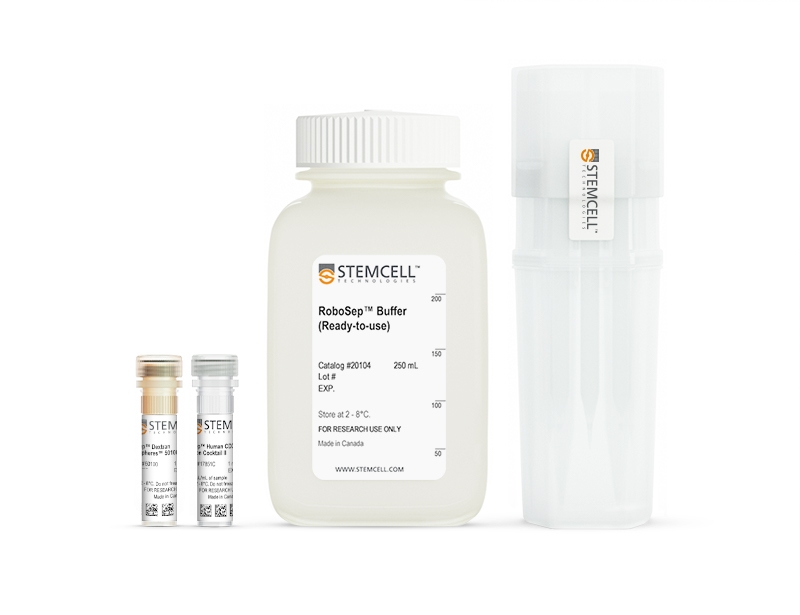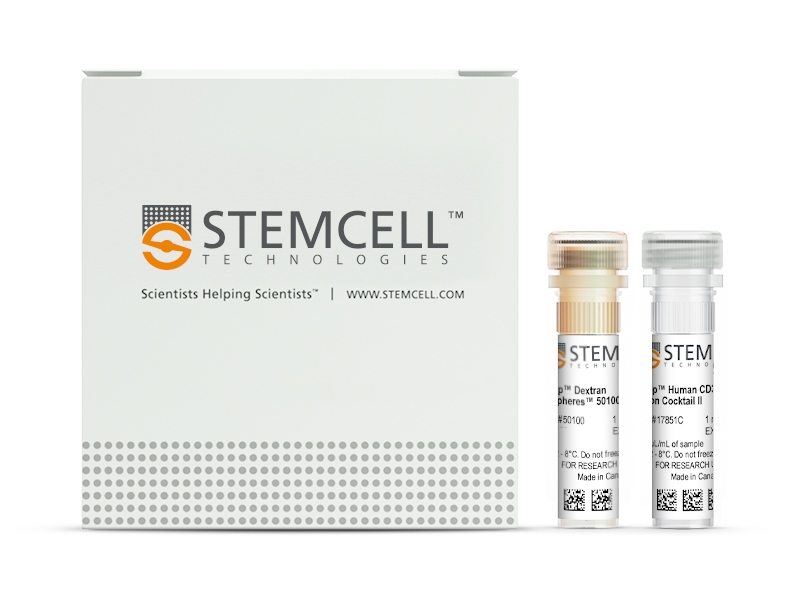概要
The EasySep™ Human CD3 Positive Selection Kit II is designed to isolate CD3+ cells from fresh or previously frozen peripheral blood mononuclear cells by positive selection. Desired cells are targeted with Tetrameric Antibody Complexes recognizing CD3 and dextran-coated magnetic particles. The cocktail also contains an antibody to human Fc receptor to minimize nonspecific binding. Labeled cells are separated using an EasySep™ magnet without the use of columns. Cells of interest remain in the tube while unwanted cells are poured off. The CD3 antigen is expressed on all T cells and CD56+ NKT cells.
This product replaces the EasySep™ Human CD3 Positive Selection Kit (Catalog #18051) for even faster cell isolations.
This product replaces the EasySep™ Human CD3 Positive Selection Kit (Catalog #18051) for even faster cell isolations.
技术资料
| Document Type | 产品名称 | Catalog # | Lot # | 语言 |
|---|---|---|---|---|
| Product Information Sheet | EasySep™ Human CD3 Positive Selection Kit II | 17851 | All | English |
| Product Information Sheet | RoboSep™ Human CD3 Positive Selection Kit II | 17851RF | All | English |
| Safety Data Sheet 1 | EasySep™ Human CD3 Positive Selection Kit II | 17851 | All | English |
| Safety Data Sheet 2 | EasySep™ Human CD3 Positive Selection Kit II | 17851 | All | English |
| Safety Data Sheet 1 | RoboSep™ Human CD3 Positive Selection Kit II | 17851RF | All | English |
| Safety Data Sheet 2 | RoboSep™ Human CD3 Positive Selection Kit II | 17851RF | All | English |
数据及文献
Data

Figure 1: Typical FACS Results with EasySep™ Human CD3 Positive Selection Kit II
Starting with a single cell suspension of human PBMCs, the CD3+ cell content of the isolated fraction is typically 99.2 ± 0.2% (mean ± SD using the purple EasySep™ Magnet).
Publications (2)
Translational oncology 2017 OCT
BiHC, a T-Cell-Engaging Bispecific Recombinant Antibody, Has Potent Cytotoxic Activity Against Her2 Tumor Cells.
Abstract
Abstract
Among different cancer immunotherapy approaches, bispecific antibodies (BsAbs) are of great interest due to their ability to recruit immune cells to kill tumor cells directly. Various BsAbs against Her2 tumor cells have been proposed with potent cytotoxic activities. However, most of these formats require extensive processing to obtain heterodimeric bispecific antibodies. In this study, we describe a bispecific antibody, BiHC (bispecific Her2-CD3 antibody), constructed with a single-domain anti-Her2 and a single-chain Fv (variable fragment) of anti-CD3 in an IgG-like format. In contrast to most IgG-like BsAbs, the two arms in BiHC have different molecular weights, making it easier to separate hetero- or homodimers. BiHC can be expressed in Escherichia coli and purified via Protein A affinity chromatography. The purified BiHC can recruit T cells and induce specific cytotoxicity of Her2-expressing tumor cells in vitro. The BiHC can also efficiently inhibit the tumor growth in vivo. Thus, BiHC is a promising candidate for the treatment of Her2-positive cancers.
Journal of immunological methods 2016 OCT
An optimized protocol for adenosine triphosphate quantification in T lymphocytes of lymphopenic patients.
Abstract
Abstract
In several clinical contexts, the measurement of ATP concentration in T lymphocytes has been proposed as a biomarker of immune status, predictive of secondary infections. However, the use of such biomarker in lymphopenic patients requires some adaptations in the ATP dosage protocol. We used blood from healthy volunteers to determine the optimal experimental settings. We investigated technical aspects such as the type of anticoagulant for blood sampling, the effect of freeze and thaw cycles, the reagent and sample mixing sequence, and the optimal dilution buffer. We also shortened the incubation time to 8h, and even showed that a 30min incubation may be sufficient. To evaluate the ATP rise upon lymphocyte activation, the optimal dose of stimulant was defined to be 4μg/mL of phytohaemagglutinin. Lastly, we determined that the number of T cells needed for this measurement was as low as 50,000, which is compatible with the existing lymphopenia in clinical settings. This optimized protocol appears ready to be assessed in lymphopenic patients to further investigate the interconnection between T lymphocyte metabolism and impaired phenotype and functions.

 网站首页
网站首页




